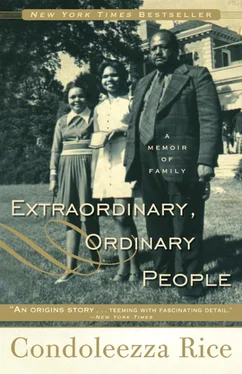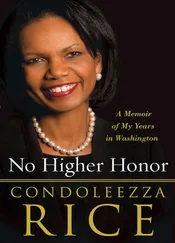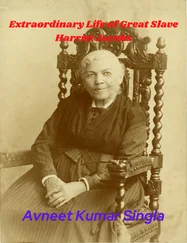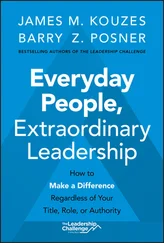These events were always exciting for my family. As the production approached, Mother was at the school almost every evening, and I would often go to the rehearsals. Aunt Connie, who was also a teacher at Western-Olin, assisted my mother. The shows were on Friday and Saturday nights, and I got to take Friday off from school to help Mother with the final preparations. Parents, grandparents, students, and the rest of the community would show up for the performance, dressed in their finest as if they were attending the Metropolitan Opera.
My mother’s productions were more elaborate than most but not unlike what was going on throughout the Birmingham public schools. These segregated schools were determined to provide these kinds of opportunities to develop their students’ artistic talents. The centerpiece of these efforts was the role of instrumental music and band. Today everyone marvels at the extraordinary band performances of historically black colleges such as Grambling or Florida A&M. This tradition ultimately traces its roots, however, to the commitment of elementary schools in the segregated South to early band instruction.
Band was an important part of the school day. In addition to attending a formal class period, band members would practice after school during both the marching band season in the fall and the concert season in the spring. I joined the Lane Elementary School band. Obviously, there was no place for a pianist in a marching band, so my parents suggested the bells (also called the glockenspiel), which had the advantage of being very much like playing the piano using a mallet. I wasn’t convinced until my father told me that the bells could be heard above every other instrument in the band.
With the bands, the excellent choirs and glee clubs, plays, and variety shows, students in Birmingham’s black schools had many opportunities to perform. No one saw these activities as extracurricular or add-ons. They were an essential part of transforming students into more cultured people with well-developed artistic talents.
The performances were also occasions for the community to come together. A play or concert at one of the high schools was a highly anticipated social event. So too were the periodic visits of acclaimed choirs and bands from the historically black colleges. The best-known choir was the Fisk Jubilee Singers, but almost every college had one. We’d travel to Stillman College in Tuscaloosa for special performances from artists such as the great black opera singer Marian Anderson in 1964. These activities were a key part of our social life at a time when it wasn’t possible to go to a concert downtown or even to a proper movie theater. They were an important and satisfying element of our parallel universe in segregated Birmingham.
The other great social outlet was the church. My father’s church, Westminster Presbyterian, was centrally located on Sixth Avenue not very far from downtown Birmingham. The neighborhood was solidly middle-class, and this was reflected in its congregation.
Services were formal and short, no more than an hour. Black Presbyterian services were a world apart from the emotional and high-energy services of the Baptist churches. Gospel music was rare, and there was no “call and response,” where the preacher would say, for instance, “Do you hear me?” and the congregation would reply, “I hear you.” There wasn’t even a stray “Amen.” I don’t mean to make the services sound boring. In fact, they were beautiful, even inspiring.
The Christmas and Easter holidays were particularly busy and enjoyable, celebrated with plays for the children and special music that took months to prepare. I loved to go to the church and help decorate, particularly on Easter, when the altar was adorned with three crosses that my uncle Alto built in his shop. There was a glorious sunrise service at six o’clock and then the regular one at eleven.
I didn’t care much, though, for the Easter egg hunt the Saturday before. I thought it was kind of pointless to hide eggs and then try to find them. I was particularly put off when I caught my parents putting an egg in my basket so that I would not be embarrassed if I failed to find one. I asked them to stop doing that, protesting that I was smart enough to find a stupid egg if I wanted to. I just didn’t want to.
My father was a terrific preacher, though he rarely raised his voice above a normal speaking tone. “He was known as a pastor who made you think before you could feel,” to quote one of his elders. This “lecture style” of preaching brought in many new members, particularly teachers who identified with my father’s more cerebral approach to his ministry.
From the time I was very young I loved to engage in theological debates with my father. This started at the age of four, when I insisted that my father was mispronouncing the name Job. It was pronounced “Job,” I insisted, not “Jobe”! My father, ever tolerant of my dissent, argued patiently and I guess decided that eventually I would know better. Our theological debates became a bit more sophisticated over the years. I always felt that my father wanted me to use my intellect to help build my faith. I was never told to simply accept anything on the face of it, and my constant questions were always engaged. Because my father never made reason and faith enemies of each other, my religious conviction was strengthened. I am grateful for that because in the many intellectual environs in which I have found myself, I have never suffered the crisis of faith that so many do. I have always believed , fully and completely.
Westminster grew rapidly under Daddy’s leadership, with new members joining frequently. He knew that it was important to make his church more than just a place of worship on Sunday. Most churches had a social component, but Daddy’s church was ahead of its time, providing a place to gather all week long. Choir practice was on Wednesdays, Bible study on Thursdays, and on Tuesdays and Thursdays, church members who were teachers offered tutoring in algebra, science, and foreign languages. Dr. Duval, a white dentist, would come to the church once a month to conduct checkups and perform dental work. There were also typing classes and etiquette lessons that taught young people such things as which fork to use at the dinner table. Friday night was “flop night,” a time when kids could come to the church for everything from chess lessons to movies, watched on a projector borrowed from the school. In the summer we looked forward to church-sponsored cookouts, as well as volleyball matches and track meets.
These activities were open to the whole community, not just to the church members. This was somewhat controversial, particularly when Daddy insisted on including the kids from Loveman Village, the government housing project behind the church. There was considerable class stratification in segregated black Birmingham. I remember being told by my mother, for instance, that my friends from Lane Elementary could come to visit me but I could not go to visit them. Their neighborhood was “too rough.”
Many of our church members were not comfortable with Daddy’s outreach activities. I recall one attempt at inclusion that backfired when during a picnic some of the kids from Loveman Village were caught teaching children from the congregation to shoot craps behind the church. “Reverend Rice, I told you they weren’t ready to be with us,” an elder told my father. Daddy came home and told Mother about the episode. He was really hurt and defended his program. But he was always struggling to reconcile his desire for the broadest outreach with what his church’s middle-class membership would tolerate.
Relations were sometimes very strained when my father pushed church members beyond their comfort zone. At one meeting of the Board of Elders, the powerful governing committee in Presbyterian churches, members decided to deny money for Daddy’s “missionary work.” My father became so angry that he turned over a table and stormed out. Daddy was a big man and could be physical in his expression of anger, though never with my mother or with me.
Читать дальше












